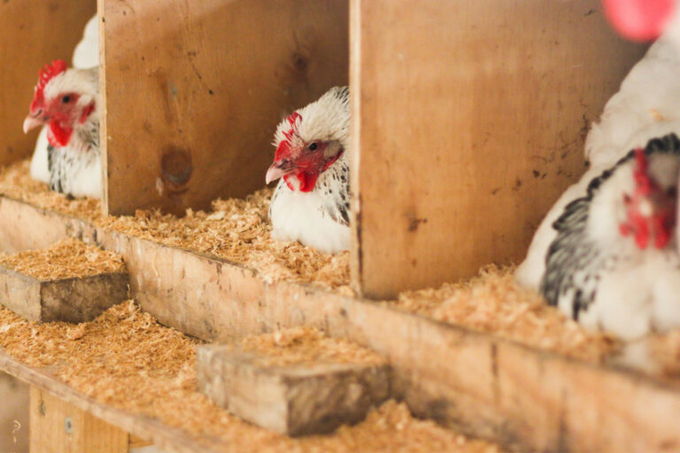November 28, 2025 | 03:48 GMT +7
November 28, 2025 | 03:48 GMT +7
Hotline: 0913.378.918
November 28, 2025 | 03:48 GMT +7
Hotline: 0913.378.918

It is advised that nest box are comfortable, quiet and enclosed for the hen. Photo: Canva
A recent literature review compiled information on factors that can affect the propensity of hens to lay floor eggs and management strategies that might prevent this behaviour from developing.
Their review included studies on factors affecting nest box use, genetics, rearing and early training, production cycle, and new technologies being developed for floor egg laying detection and management.
The online information was boosted by interviews with 10 egg producers within Australia to understand current management practices within the industry.
The right strategies at the right time
The study found that floor eggs are manageable if the right strategies are implemented during the rearing period and when the birds first start laying their eggs. This is more challenging for egg producers that purchase point-of-lay birds and have limited control over rearing conditions.
Understanding the behaviour and needs of a particular hen strain or flock is important given the multiple factors that can influence floor egg laying development. But, they said, floor egg laying may still develop if all causative factors are unable to be addressed.
Conclusions and applications
The research highlighted 11 key issues:
(Poultryworld)

(VAN) A new study reveals how the simultaneous effects of ocean acidification, salinity and loss of oxygen are making the world more fragile.

(VAN) Hopes are growing that the creation of the first 3D turkey gut model could be a turning point in the battle against the virulent blackhead disease.

(VAN) Tyson, America’s biggest meat supplier, plans to shutter one of its largest beef processing plants as the industry continues to struggle with low cattle supplies and political pressure from Washington.

(VAN) New FAO study shows how digital solutions are empowering farmers and fishers to prevent losses and build resilient agrifood systems.

(VAN) Brazil's COP30 presidency pushed through a compromise climate deal on Saturday that would boost finance for poor nations coping with global warming but that omitted any mention of the fossil fuels driving it.

(VAN) Poultry farmers in the UK have been warned that they could face one of the worst winters yet for bird flu.

(VAN) Prices of main-crop paddy have risen sharply, with jasmine rice hitting 16,100 baht per tonne — the highest level in years.